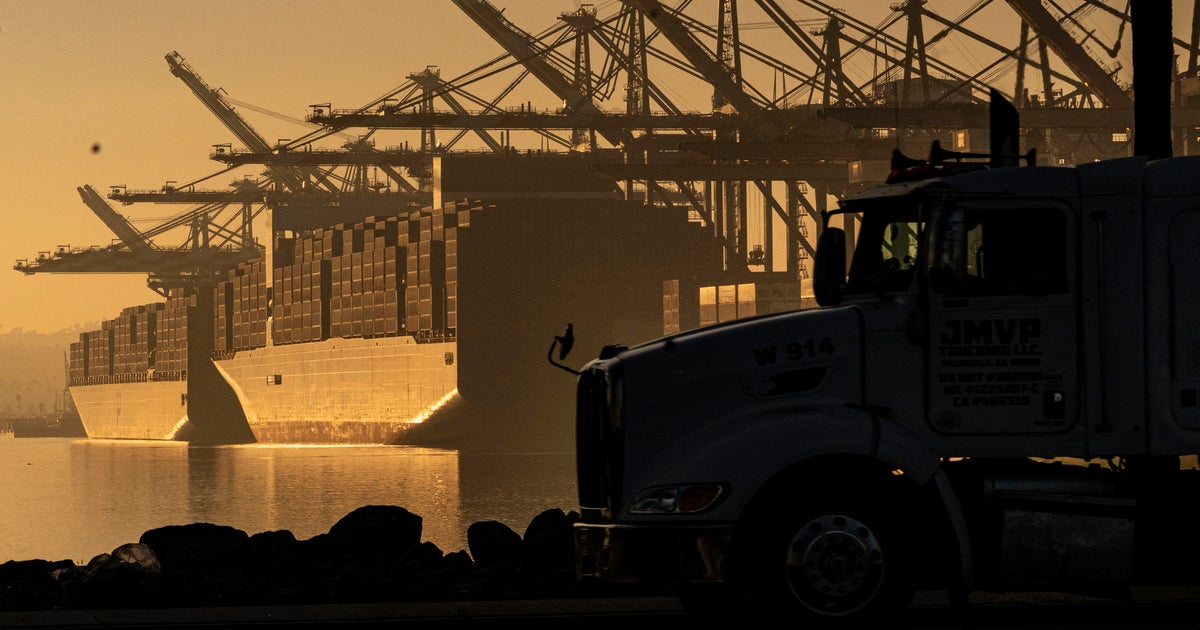
Dockworkers at key U.S. ports threatening strike consumers could feel
CBSN
Determined to thwart the automating of their jobs, about 45,000 dockworkers along the U.S. East and Gulf Coasts are threatening to strike on Oct. 1, a move that would shut down ports that handle about half the nation's cargo from ships.
The International Longshoremen's Union is demanding significantly higher wages and a total ban on the automation of cranes, gates and container movements that are used in the loading or loading of freight at 36 U.S. ports. Whenever and however the dispute is resolved, it's likely to affect how freight moves in and out of the United States for years to come.
If a strike were resolved within a few weeks, consumers probably wouldn't notice any major shortages of retail goods. But a strike that persists for more than a month would likely cause a shortage of some consumer products, although most holiday retail goods have already arrived from overseas.
